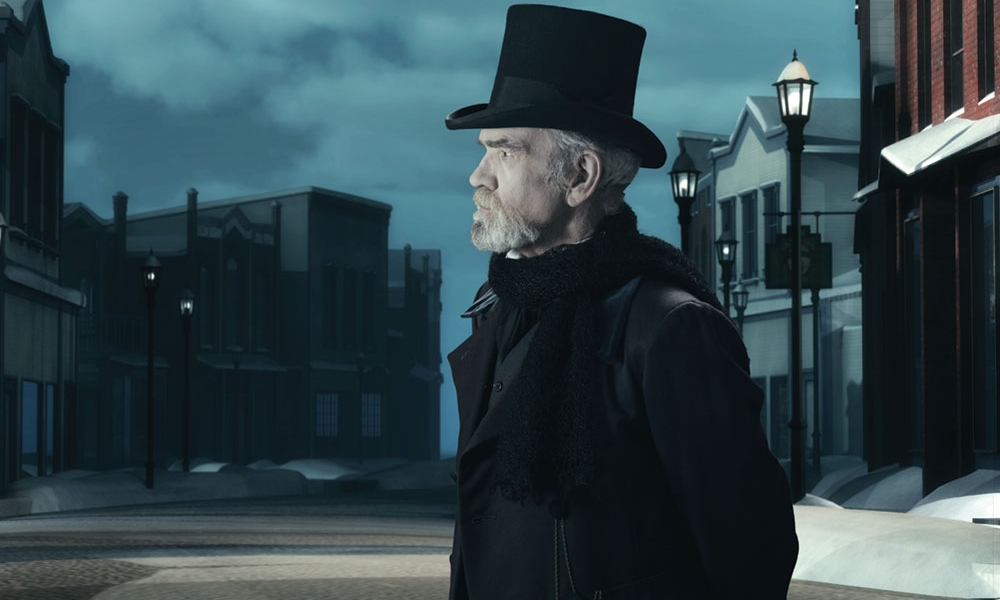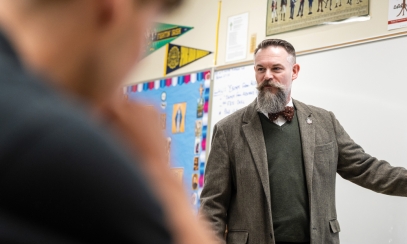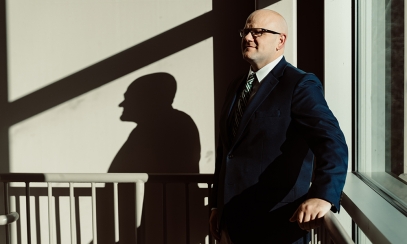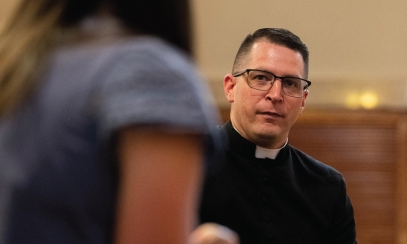
Christmas Short Story Contest: The trial of Ebenezer Scrooge
Getting your Trinity Audio player ready...An embarrassment of riches!
First of all, a huge thank you to the many scribes who sent in submissions to our Christmas Short Story Contest. The standard of writing was high, and it was an unalloyed pleasure reading through the entries. Many of the entries conjured up the warmth of the Holiday season and not a few reminisced about Christmases long ago. A number of stories set up a conflict for a character, which was satisfyingly resolved in the end. Some shone light on the protagonist’s conversion experience, especially regarding attending the Christmas vigil Mass.
An embarrassment of riches!
First of all, a huge thank you to the many scribes who sent in submissions to our Christmas Short Story Contest. The standard of writing was high, and it was an unalloyed pleasure reading through the entries. Many of the entries conjured up the warmth of the Holiday season and not a few reminisced about Christmases long ago. A number of stories set up a conflict for a character, which was satisfyingly resolved in the end. Some shone light on the protagonist’s conversion experience, especially regarding attending the Christmas vigil Mass.
A few took a completely different and imaginative approach, such as Emma Restuccia’s “While angels watch are keeping,” which focuses on how an inmate of a prison experienced Christmas, and Matthew Anderson’s “Christmas Exiles,” which unfolded the meaning of Christmas through the eyes of a fallen angel! Lauren Snyder and Ana Braga-Henebry distinguished themselves through their excellent writing, as did Erin Hogan and Abby Hunt.
Needless to say, it was an excruciatingly difficult task to pick just one winner from the batch of outstanding entries. Nevertheless, one story did stand out, for both quality of writing and original subject matter. Robert Bearss’s “The Trial of Ebenezer Scrooge, therefore wins the competition and is awarded the $500 prize. Well done, Robert! And commiseration to everyone else. Look out for next year’s contest in the pages of FAITH Magazine.
The trial of Ebenezer Scrooge
Ebenezer Scrooge woke up with a start. He found himself sitting on a hard wooden chair, dressed only in his nightgown. Looking around the shadowy, empty room, he noted the dark wood paneling covering the walls, a large wooden desk on a raised platform looming in front of him, and several rows of benches off to his left. Scrooge glanced down and realized he was sitting in a three-sided, waist-high wooden box. Suddenly, it hit him all at once: this was a courtroom, and he was in the place of the accused.
“How on earth did I get here?” he wondered aloud.
He was about to dismiss the whole situation as a dream when a horrible thought occurred to him. With a trembling hand, he reached out and touched the wood in front of him. It was solid. His environment was real. Scrooge’s mind flashed back twenty years ago to the day: Christmas Eve, 1843. On that night, he had had a profound, if terrifying experience—an encounter with the spectral form of his late business partner, Jacob Marley, which had sparked a series of encounters with three spirits, leading him on a journey through time which forced him to see the effects of his stingy, cruel behavior on those around him. Grateful for the experience, he felt it had shifted him onto a new path of kindness and generosity. Yet one question still haunted him:
“Have I done enough? Have my actions of the past twenty years atoned for the way I treated my staff, my debtors, my family? Have I really changed? Will I—”
“Good Heavens!” Scrooge gave a sudden cry of fright. A tall man in a black robe and a powdered wig had appeared to his right.
“Wh—who are you?” he stammered.
The man smiled. “I’m your lawyer, Ebenezer. I’m here to defend you.”
Scrooge’s fear melted away at the man’s words. His kind face and gentle manner provided the only calming presence in the otherwise grim and ghoulish courtroom.
“Defend me?” Scrooge asked, bewildered. “Am I on trial?”
“Yes, Mr. Scrooge, you are,” came a voice from his left.
Scrooge turned sharply to face the speaker. It was another lawyer, a prosecutor, dressed identically to the defense attorney, but with a sarcastic grin of cruel superiority. The prosecutor approached the bench, where a large, brown leather-bound book suddenly appeared.
“All rise,” he commanded.
Scrooge stood as the prosecutor began.
“This man,” he said, pointing an accusatory finger at Scrooge, “has led a selfish, evil, and miserable life. All he ever concerned himself with was amassing wealth for his own benefit. He treated his staff like dirt, ignored his family, and terrorized the poor of London for years.”
As he spoke, the prosecutor opened the book. Scrooge looked on in horror as the words on the page seemed to come to life. Images of his misdeeds played out in the courtroom in front of him. He relived some of the lowest points of his life: evicting a starving family from their home, forcing his clerk, Bob Cratchit, to work extra hours without pay, tripling the interest rate on a loan simply to enrich himself, and refusing a loan to a struggling shop owner. As countless examples of Scrooge’s cruelty continued to unfold, the defense attorney suddenly called for the book to be shut.
“Mr. Prosecutor,” he said, “while it is true that my client conducted himself in such a manner, he has been a markedly different man these past twenty years. He has lived a life of kindness, service, and generosity, and has become a pillar of his community.”
At this, the defense attorney opened the book again. The images resumed, but this time they told an altogether different story. Scrooge relived Christmas morning twenty years ago, following his encounter with the spirits. He saw his subsequent visit to the Cratchit home, his arms laden with gifts and food. He saw his long friendship with the Cratchit family, time spent with his nephew, Fred, and all of his nieces and nephews. He witnessed his attempts to aid those in need and the many generous loans he made through his moneylending business, sometimes at a loss to himself. The images culminated with the events of the past twenty-four hours: Scrooge at his nephew’s house, celebrating Christmas surrounded by friends and family. He saw the enormous Christmas tree in the parlor, the roaring fire, and the plump, delicious turkey. He had almost not gone, due to his declining health, but Fred had sent a cab that morning to collect his beloved uncle. Scrooge saw the end of the party, he saw himself returning home, preparing for bed, lying down—when suddenly it hit him.
“I’m dead, aren’t I?” he said.
The images stopped as the prosecutor fixed Scrooge with a withering glare.
“Dead as a doornail,” he said. “The past twenty years prove nothing. Do you think that any of that undoes all the harm you’ve done, all the people you’ve hurt? You know what you deserve. It’s time to go.” He walked toward Scrooge with an outstretched hand.
Scrooge shrank back in horror. He knew this was inevitable; he had often wrestled with the same thoughts. But as the prosecutor drew closer, the defense attorney blocked his path.
“Mr. Scrooge,” he said, turning to face the trembling old man, “you may listen to this man if you wish, but I have something to show you. Come with me.”
The defense attorney reached out his hand, and Scrooge took it. Suddenly, the courtroom melted away, and all three found themselves looking into a small, dark cave. Inside were a group of men. Some were poor and shabbily dressed, while others were clad in fine robes and jewelry. All were admiring a small baby lying in a manger, while the child’s parents looked on. The prosecutor took one look at the scene and fled in terror, leaving Scrooge alone with the defense attorney.
“He was right, you know,” the attorney said. “None of your good deeds will erase the evil ones, but it doesn’t matter. I’ve already erased them. It was because of My coming here, all those years ago, that you were able to change your ways.”
Scrooge looked at the child in the manger and then back at the man beside him. His lawyer’s garb had disappeared, replaced by a glowing white garment. The old man’s mind suddenly cleared as he realized who had sent the spirits to him all those years ago, who had stood beside him at his trial, who had inspired all of his good deeds of the past twenty years.
Scrooge fell to his knees and began to weep as the Man in the white garment gently helped him up.
“Take my hand, Ebenezer,” He said. “It’s time to go.”
As Scrooge grasped the hand, he felt an intense burning sensation. Despite the pain, he held on for dear life. The sensation lessened, becoming more normal, even pleasant, as Scrooge felt all of his guilt and regret melt away. In a flash of light, the two vanished, and all was quiet.
Back in London, the clock struck midnight as snow fell around the house containing the dead body of Ebenezer Scrooge. Morning would come, and with it, Christmas. In many ways, the date of his death was fitting, as his loved ones would remember not only the life of a kind and generous man who had touched their lives in so many ways but also the birth of the One who had made it all possible.
Robert Bearss is 24 years old and lives in Swartz Creek. He is a graduate of the University of Michigan, Flint, with a mechanical engineering degree and currently works for a construction company that builds industrial solar farms.



